Exclusive: World Cup fans should wave rainbow flags at Russian stadiums, says leading activist
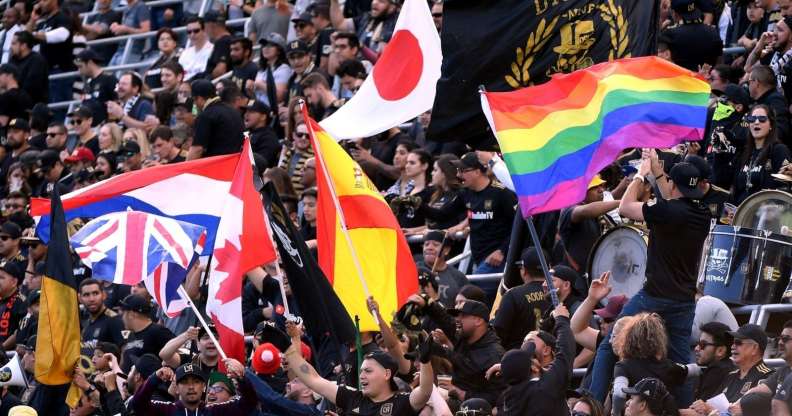
(Harry How/Getty)
Football fans should “feel free” to wave rainbow pride flags during the World Cup in Russia, a leading activist has said.
Joe White, who runs campaigns for Pride in Football, emphasised that supporters should only promote the LGBT cause if they feel safe, but added that the World Cup represented an unprecedented opportunity in the country.
Last week, the UK Government responded to criticism from Parliament’s Foreign Affairs Committee earlier this month by finally providing fans with LGBT guidance.
The Government has warned that in Russia, “public attitudes towards LGBT+ people are less tolerant than in the UK,” before directing supporters to advice published by the Football Supporters’ Federation.
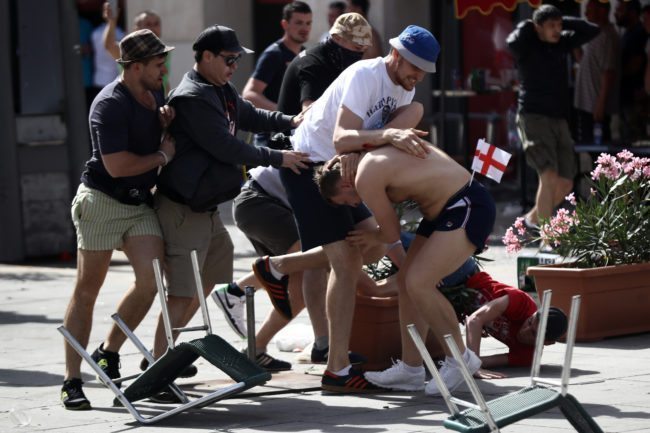
England fans clash with Russian fans (Carl Court/Getty)
The FSF’s guide “strongly” warns queer fans not to “publicly display sexuality” – for instance by holding hands or being affectionate towards their partner – at the World Cup, to ensure their safety.
White revealed on May 28 that Pride in Football has received death threats which have been reported to the police, with some telling the group that “if they find us they’ll stab us.”
But speaking to PinkNews, he called the FSF’s guide “overly cautious” and encouraged fans in Russia to make the most of a rare chance to promote LGBT visibility in Russia with the world watching.
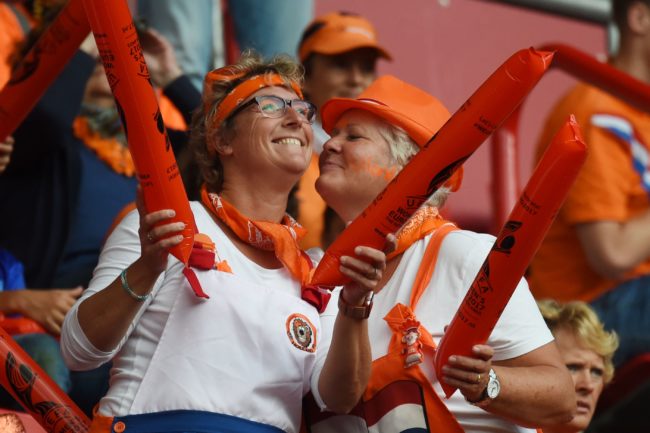
(DANIEL MIHAILESCU/AFP/Getty)
“If you’re comfortable having a rainbow flag, then definitely feel free to do so,” said White.
“It’s definitely something I’m going to be doing.
“I’m going out to Russia and I’ll be out there, and visible. I’m someone who when I say something’s a good idea, I’ll do it myself.”
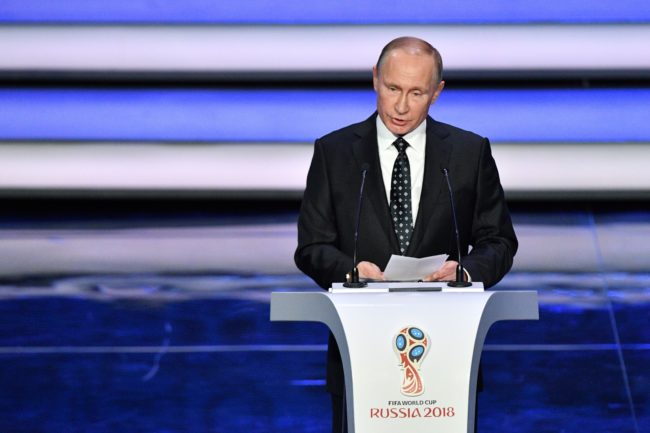
(MLADEN ANTONOV/AFP/Getty)
The 25-year-old, who hopes to attend three matches at the World Cup, said that the sight of Pride colours in World Cup stadiums would fight back against repeated claims by Russian authorities that there are no gay people in the country.
White, who supports Arsenal and England, called these falsehoods “obviously completely ludicrous,” adding that it could do wonders simply to “show that there is visibility, that there is support from across the world for [LGBT] visibility within football.”
He said that his group had discussed boycotting the tournament, but after talking to LGBT people in Russia had decided that openly supporting the cause in front of an audience of millions could have a huge impact.
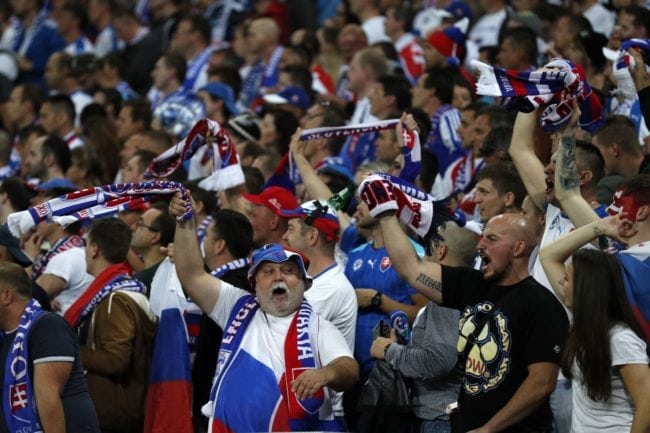
(ADRIAN DENNIS/AFP/Getty)
“A big process for deciding whether to go to Russia was talking to LGBT Russians making sure it doesn’t negatively impact on them, either during or after the tournament.
“Actually what quite a few said was that we have an opportunity for visibility that they would never otherwise have.”
They also said that “what the likes of Putin want to be able to do is to turn around and say: ‘Oh, we had all of this fuss about LGBT inclusion and visibilty before the World Cup, and we had a wonderful World Cup and there were no LGBT people there at all,’ because there wasn’t any visibility.
“So it’s something that will be a lot safer than Russian LGBT people will be doing,” White added.
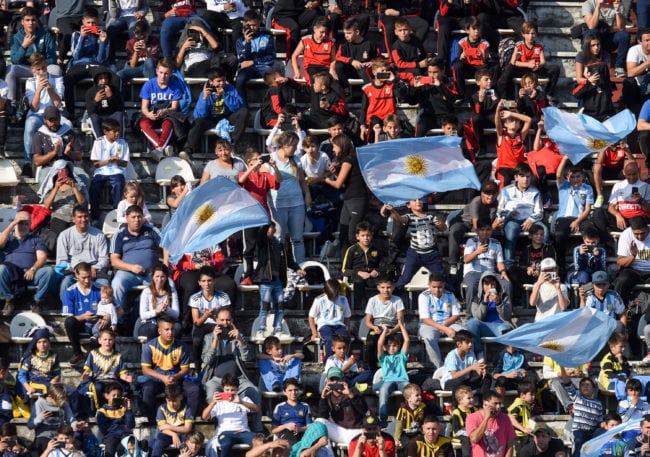
(Marcelo Endelli/Getty)
He also said that there was hope for FIFA, despite the organisation having handed the World Cup to Russia – which has seen hate crimes against LGBT people double since the introduction of a law banning gay “propaganda” – and Qatar, where homosexuality is illegal.
One of the two main bids for the 2026 World Cup is from Morocco – another country where being gay is against the law – which White called “an obvious concern.”
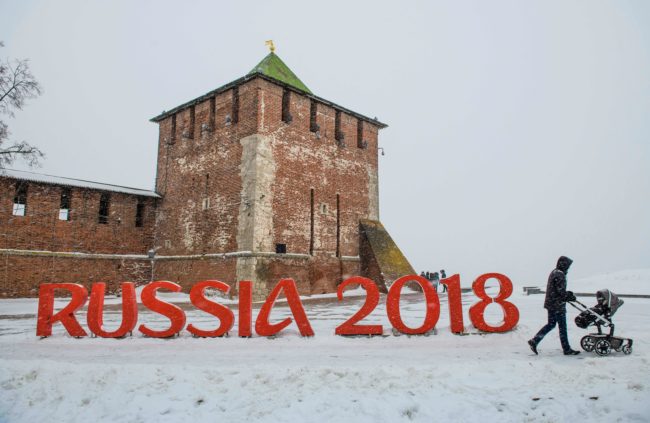
(MLADEN ANTONOV/AFP/Getty)
Nevertheless, he pointed to the progress which has been made over the past year, such as the fact that this will be the first World Cup in which referees can abandon a game if they hear homophobic chanting.
“They are starting to take it seriously,” he said. “It’s a symbol of FIFA’s approach. They realise this is an issue.”

